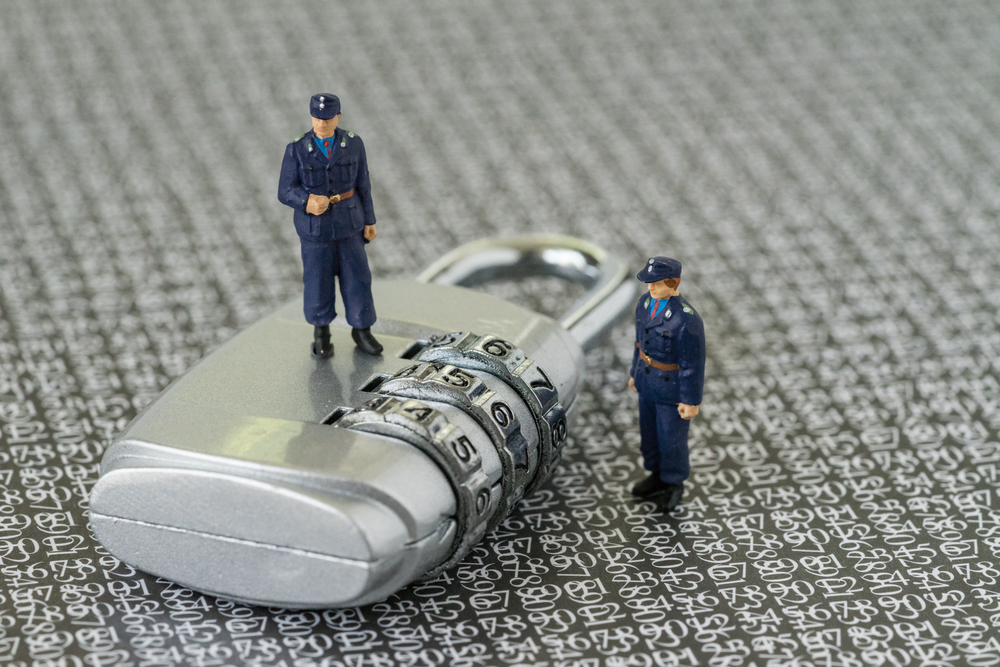The holiday shopping season starts earlier and earlier each year, beginning with Black Friday and Cyber Monday and running through the to end of December.
So it's important to have these tips ready for safe shopping and cybersecurity for online use.
WeLiveSecurity has offered safe online shopping advice each year since 2011, with articles specific to the cybersecurity trends occurring at the time.
Here is just a sample of the advice we have provided over the past four years:
- 2014: Ready, set, shop: 10 top tips for a safe shopping season
- 2015: You are 6 security steps away from Black Friday brilliance
- 2016: Historic Black Friday online safety advice
- 2017: Cyber-savvy New Year’s resolutions you’ll want to keep
Family and friends working together for a safer online world
For the 2017 holiday shopping season we are focusing on how friends and families (parents and children) can work together not only to ensure a safer holiday shopping season, but also to secure their digital devices and protect their online activity.
Holiday shopping season has started…now!
The year over year trend shows that holiday shopping spending is increasing each year, with a new record predicted again for 2017. People are also starting their holiday shopping earlier.
Since people are starting their holiday shopping earlier this year, we wanted to provide some tips to help keep your online shopping experience safer as well as your digital devices more secure.
Cybersecurity is a shared responsibility
The holidays are a time when people purchase gifts for their friends, families, and yes, even for themselves. Increasingly, children are using and accessing more and more digital devices — making it important for everyone to work together to secure these devices. The non-profit organization Securing Our eCity (SOeC) works tirelessly to provide cybersecurity education for individuals and families. Cybersecurity is a shared responsibility, and everyone should do their best to practice good cyber hygiene.
Holiday tips for you
The Executive Director for SOeC, Liz Frauman, recently spoke on the eCity CyberTalk radio show. She offered five tips for online shoppers, as well as the following acknowledgment that you can shop safely online.
These tips come from Ms. Frauman's first-hand experience of over eight years of working with people in cybersecurity.
Tip 1: Make sure children don't have access to an unattended device where purchases can be made.
Parents need to work with children on their “Wish List.” In the past, children used to dog-ear pages of the Sears catalog, but now it's online. There are stories of children putting items on wish lists, and then accidentally or on purpose (it depends on whom you ask!), the item is purchased.
Recently, a friend posted a picture of an ironing board that arrived unexpectedly on their doorstep, as it was accidentally added to their account from their child's wish list. They took an "unexpected purchase selfie" with it on their porch—this is actually a thing, "unexpected purchase selfie!”
Tip 2: Have a separate account for online shopping credit cards that's not connected to your primary accounts.
Or, even better, buy yourself gift cards. Using gift cards also helps you stick to a budget.
Tip 3: Change passwords before the holidays and then change them again after.
Or even better, use a password manager.
Choosing your password is perhaps one of the easiest, yet most challenging security measures that you can do. The objective is to remember it without writing it on a post-it that you keep next to your computer, but also making it complex enough that it is not easy for hackers to gain access to your computer. Avoid some of the following pitfalls and consider a “pass-phrase” like “mybirthdayis1970Jan15.”
Tip 4: If you're buying computers or other digital devices, make sure to get products to protect them as well, and make sure to install and configure them before the devices go online!
If you have new digital devices planned for holiday gifts, don’t forget the security products to help protect them. Unprotected devices can be infected in less than five minutes.
Use family-safe software and tools. No single technology solution meets the needs of every family, so explore the many different tools that can help you keep your children safe online.
A few more digital device tips:
- Use an internet firewall at all times. The firewall is your first line of defense in protecting your computer because it helps to obscure your devices to online attackers and many types of malicious software.
- Keep your operating system up to date; enable its automatic update features. Cybercriminals are constantly at work devising new ways to attack your computer and invade your privacy.
- Maintain antivirus and antispyware software. Antivirus and antispyware software help to protect your computer by scanning email, applications, and data that resides on your computer. Strong antivirus and spyware programs can detect and remove viruses and spyware before they have a chance to damage your devices.
Tip 5: Update your products (security and firmware updates that are available between the time the product is made and when you set it up), patches, etc.
If you remember to keep your software and firmware up-to-date, you can help protect your computer and digital devices and keep your computer and digital devices more secure.
For information for how families can work together with technology for a more secure digital world, see Cyber Security Tips for Family SOeC basic tip sheet for families.
About the Authors:
Liz Fraumann is the Executive Director of the Securing Our eCity Foundation. Ms. Fraumann is a seasoned veteran of the high-tech industry, with a broad background in marketing and marketing communications.
Fer O'Neil is a Knowledgebase Technical Writer for ESET.






